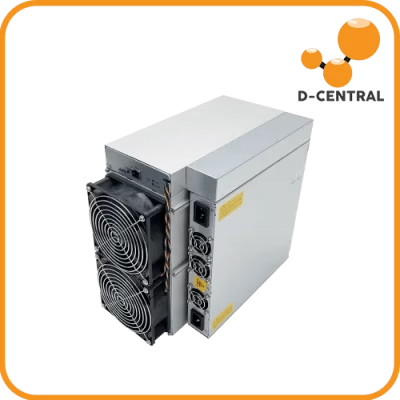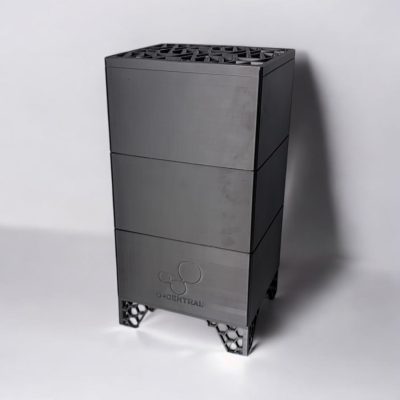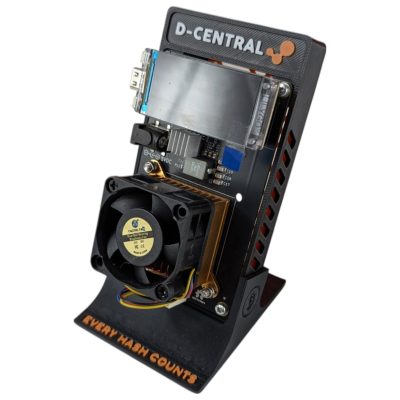In the rapidly evolving world of digital currencies, crypto mining emerges as a cornerstone, underpinning the very essence of the blockchain ecosystem. This intricate process, which involves validating transactions and adding them to the blockchain’s public ledger, is not just fundamental for the creation of new coins but also crucial for the security and integrity of the entire blockchain network. As the blockchain continues to burgeon, the role of crypto mining has never been more pivotal, serving as the backbone that ensures transparency, trust, and immutability in digital transactions.
However, the task of crypto mining is far from trivial. It demands significant computational power and energy, posing substantial challenges in terms of efficiency and scalability, especially for individual miners and smaller operations. This is where the concept of hosting facilities comes into play, revolutionizing the way mining activities are conducted. Hosting facilities, or mining farms, provide a professional, optimized environment for crypto mining, offering access to high-grade infrastructure, advanced cooling systems, robust security measures, and, critically, a more cost-effective power supply. These specialized facilities are designed to accommodate the high demands of mining hardware, ensuring that mining operations can run at peak efficiency around the clock.
The advent of hosting facilities has significantly impacted the scalability of crypto mining. By pooling resources and leveraging economies of scale, these facilities make it feasible for miners to amplify their mining efforts without the prohibitive costs and logistical complexities associated with scaling up operations independently. This symbiotic relationship between miners and hosting facilities not only enhances the efficiency of mining activities but also contributes to the overall stability and growth of the blockchain network.
As we delve deeper into the realm of crypto mining and hosting facilities, it becomes evident that these specialized centers are more than just a solution to the technical challenges of mining; they are a catalyst for innovation and growth in the blockchain ecosystem, enabling miners to reach new heights of efficiency and scalability in their quest to support and secure the digital currency landscape.
Understanding Crypto Mining
Crypto mining is the process by which transactions are verified and added to the public ledger, known as the blockchain, and also the means through which new cryptocurrencies are released. At its core, mining involves solving complex cryptographic puzzles that require significant computational power. Miners use specialized hardware to complete these tasks, competing to solve the puzzles first. The first miner to solve the puzzle gets the opportunity to add a new block of transactions to the blockchain and is rewarded with a certain amount of cryptocurrency.
The process begins with miners collecting transactions from a network’s transaction pool and assembling them into a block. To add this block to the blockchain, miners must find a specific numeric solution to a cryptographic hash algorithm that meets a network-determined level of difficulty. This solution is known as a “nonce,” and finding it requires miners to perform many hash function calculations, which consumes a lot of electricity and computational resources.
The Importance of Mining in Blockchain Networks
Mining plays a crucial role in both the creation of new coins and the maintenance of the network’s security and integrity. It ensures decentralization by allowing different participants to validate transactions, preventing any single entity from having control over the blockchain. This process also secures the network by making it computationally infeasible to alter any past transactions, as doing so would require re-mining all subsequent blocks.
Furthermore, mining is instrumental in the consensus mechanism of blockchain networks, particularly those using Proof of Work (PoW). It enables a trustless and secure way to agree on the state of the ledger without needing a central authority, ensuring that all transactions are valid and double-spending is prevented.
Challenges Faced by Individual Miners and Mining Operations
As the blockchain and cryptocurrency sectors have matured, mining has become increasingly competitive and complex, presenting several challenges:
- High Energy Consumption: Mining requires a significant amount of electrical power, making energy costs a substantial part of a miner’s operational expenses. The environmental impact of this energy use has also become a growing concern.
- Advanced Hardware Requirements: The difficulty of mining puzzles adjusts over time, requiring more powerful and efficient hardware, such as ASICs (Application-Specific Integrated Circuits) and GPUs (Graphics Processing Units), to remain competitive. This hardware can be expensive and quickly become obsolete.
- Network Difficulty Increases: As more miners join the network, the difficulty of mining puzzles increases, reducing the probability of solving a block and earning rewards. This makes it harder for smaller miners to compete with large mining pools and operations.
- Regulatory and Security Risks: Miners must navigate a complex landscape of regulations that vary by jurisdiction, which can impact the profitability and legality of mining operations. Additionally, the risk of hacking and security breaches requires constant vigilance and sophisticated security measures.
- Market Volatility: The value of cryptocurrencies can be highly volatile, affecting the profitability of mining. Miners must manage the financial risk associated with fluctuations in the price of the cryptocurrency they are mining.
These challenges have led to the rise of hosting facilities, which offer solutions to many of the issues faced by individual miners and smaller operations, providing a more efficient and scalable approach to crypto mining.
The Evolution of Crypto Mining Infrastructure
The journey of crypto mining has seen a significant transformation, evolving from the early days of solo mining to the complex landscape of mining pools and large-scale operations. Initially, individuals could mine cryptocurrencies like Bitcoin from their personal computers, using basic CPU power. This period was marked by a low network difficulty level, making it feasible for solo miners to solve cryptographic puzzles and earn block rewards.
As the popularity and value of cryptocurrencies surged, so did the competition and difficulty of mining. This shift necessitated a move towards more collaborative efforts, giving rise to mining pools. In these pools, individual miners combine their computational resources to increase their collective chances of solving blocks and earning rewards, which are then distributed among pool members based on the amount of work each miner contributed. This approach significantly improved the efficiency and profitability of mining for individuals who might otherwise struggle to compete in the increasingly challenging mining landscape.
Technological Advancements in Mining Hardware
Parallel to the shift towards collaborative mining, there have been substantial technological advancements in mining hardware. The limitations of CPU mining quickly became apparent as network difficulties rose, leading miners to adopt more powerful Graphics Processing Units (GPUs). GPUs offered a significant increase in hashing power and efficiency compared to CPUs, marking a new era in mining capabilities.
However, the quest for even greater efficiency and power led to the development of Application-Specific Integrated Circuits (ASICs). Designed specifically for mining cryptocurrencies, ASICs offer unparalleled hashing capabilities and energy efficiency compared to GPUs and CPUs. The advent of ASICs has significantly raised the stakes in mining, as their superior performance makes them indispensable for competitive mining but also increases the entry barriers for new miners due to their high cost and specialized nature.
The Emergence of Hosting Facilities
The escalating requirements for successful mining, in terms of both hardware and energy consumption, have led to the emergence of hosting facilities as a pivotal solution to the scalability and efficiency challenges faced by miners. Hosting facilities, or mining farms, provide a professional, optimized environment for crypto mining, offering access to industrial-grade infrastructure, advanced cooling systems, robust security measures, and, critically, a more cost-effective power supply.
These specialized facilities are designed to accommodate the high demands of mining hardware, ensuring that mining operations can run at peak efficiency around the clock. By leveraging economies of scale, hosting facilities make it feasible for miners to amplify their mining efforts without the prohibitive costs and logistical complexities associated with scaling up operations independently. Furthermore, hosting facilities often have access to cheaper and sometimes renewable energy sources, addressing both the cost and environmental concerns associated with mining.
The evolution of crypto mining infrastructure from solo mining to the sophisticated ecosystem of mining pools and hosting facilities reflects the dynamic nature of the blockchain industry. It highlights the continuous innovation and adaptation required to maintain and secure blockchain networks efficiently and sustainably in the face of growing challenges.
The Significance of Hosting Facilities in Crypto Mining
Hosting facilities, often referred to as mining farms or data centers, are specialized environments designed to accommodate and optimize the operations of crypto mining hardware. These facilities provide the infrastructure and services necessary for large-scale mining, addressing the significant demands of power, cooling, and security that individual miners or smaller operations might struggle to meet on their own. By centralizing resources, hosting facilities offer a solution that enhances the efficiency, reliability, and scalability of crypto mining activities.
Key Services Provided by Hosting Facilities
Hardware Maintenance
One of the primary services offered by hosting facilities is comprehensive hardware maintenance. This includes regular checks, updates, and repairs to ensure that the mining hardware operates at peak performance. Given the continuous operation of mining equipment, wear and tear are inevitable. Hosting facilities employ skilled technicians who specialize in maintaining and troubleshooting mining hardware, extending its lifespan and ensuring uninterrupted mining operations.
Power Supply
Crypto mining is notoriously power-intensive, making the cost and reliability of electricity significant factors in the profitability of mining operations. Hosting facilities often have access to industrial-grade power supplies and may benefit from economies of scale, securing electricity at lower rates. Moreover, many facilities are strategically located in regions with access to cheaper or renewable energy sources, such as hydroelectric, solar, or wind power, contributing to cost reduction and sustainability.
Cooling Systems
The intense computational effort involved in mining generates substantial heat, necessitating effective cooling solutions to prevent hardware damage and maintain efficiency. Hosting facilities are equipped with advanced cooling systems, ranging from traditional air conditioning to more innovative solutions like liquid or immersion cooling. These systems ensure that the mining hardware is kept at optimal temperatures, preventing overheating and potential downtimes.
Security
Security is paramount in crypto mining, given the high value of the mining equipment and the digital assets being generated. Hosting facilities provide robust security measures, including physical security with surveillance cameras, secure access controls, and on-site security personnel, as well as cybersecurity protocols to protect against digital threats. This comprehensive security approach safeguards miners’ investments and the integrity of their mining operations.
Contribution to Efficiency and Scalability
Hosting facilities play a crucial role in enhancing the efficiency and scalability of crypto mining operations. By providing a controlled environment optimized for mining, these facilities ensure that hardware operates within ideal conditions, maximizing hash rates and minimizing downtimes. The professional maintenance and management of equipment further enhance efficiency, reducing the likelihood of hardware failures and ensuring quick resolution of any issues.
In terms of scalability, hosting facilities offer miners the flexibility to expand their operations without the logistical and financial burdens of setting up and maintaining additional infrastructure. Miners can lease space and power in a hosting facility to accommodate more hardware as their operations grow, benefiting from the facility’s existing infrastructure and services. This scalability is essential in the competitive landscape of crypto mining, where the ability to quickly adapt and expand operations can significantly impact profitability.
In summary, hosting facilities are indispensable in the modern crypto mining ecosystem, providing the specialized services and infrastructure necessary to support large-scale mining operations. Their contribution to the efficiency and scalability of mining activities not only benefits individual miners and mining companies but also supports the overall growth and security of blockchain networks.
Factors Contributing to Mining Efficiency
Crypto mining is an energy-intensive activity, with operations running 24/7 to solve complex cryptographic puzzles. This continuous operation leads to substantial electricity consumption, making energy one of the most significant operational costs for mining. The high demand for energy not only affects profitability due to high utility bills but also raises environmental concerns due to the carbon footprint associated with traditional energy sources.
Strategies for Energy Management and Cost Reduction
Hosting facilities employ various strategies to manage energy consumption and reduce costs. These include:
- Negotiated Power Rates: By leveraging their large-scale operations, hosting facilities often negotiate lower electricity rates with power providers, reducing the overall cost of mining.
- Energy-Efficient Hardware: Utilizing the latest, most energy-efficient mining hardware reduces power consumption without compromising mining efficiency.
- Load Balancing: Intelligent systems distribute energy use across operations to avoid peak charges and optimize power usage.
Role of Renewable Energy Sources
Many hosting facilities are transitioning to renewable energy sources such as solar, wind, and hydroelectric power. This shift not only helps in reducing the environmental impact of mining operations but also contributes to long-term sustainability and cost reduction. Renewable energy sources can offer more stable and potentially lower energy costs, making mining operations more eco-friendly and economically viable.
Cooling Solutions
Importance of Effective Cooling
Effective cooling is crucial in maintaining the longevity and performance of mining hardware. The intense processing power required for mining generates significant heat, which, if not adequately dissipated, can lead to hardware degradation, reduced efficiency, and even system failures.
Cooling Technologies in Hosting Facilities
Hosting facilities utilize a range of cooling technologies to maintain optimal operating temperatures:
- Air Cooling: Traditional air conditioning and customized airflow designs ensure that cool air circulates effectively around the mining hardware.
- Liquid Cooling: Some facilities employ liquid cooling systems, where hardware is either directly immersed in a non-conductive liquid or cooled using liquid-cooled plates, offering superior heat dissipation.
- Immersion Cooling: An advanced method where mining equipment is fully immersed in a thermally conductive but electrically insulating liquid, providing efficient cooling and reducing dust and noise.
Hardware Optimization
Regular Hardware Updates and Maintenance
The rapidly evolving nature of blockchain technology and the increasing difficulty of mining algorithms necessitate regular hardware updates and maintenance. Staying current with the latest hardware advancements ensures that mining operations remain competitive and efficient.
Ensuring Optimal Performance
Hosting facilities play a pivotal role in hardware optimization through:
- Routine Maintenance: Regular checks and maintenance prevent hardware failures and ensure mining rigs operate at peak efficiency.
- Hardware Upgrades: Hosting facilities often facilitate or directly provide hardware upgrades, allowing miners to access the latest technology without significant downtime.
- Custom Configurations: Expert technicians at hosting facilities can optimize hardware settings and configurations, tailoring them to specific mining tasks for enhanced performance.
The efficiency of crypto mining operations hinges on effective power and energy management, advanced cooling solutions, and continuous hardware optimization. Hosting facilities are at the forefront of implementing these strategies, providing an environment where mining operations can thrive, scale, and contribute to the sustainable growth of the blockchain ecosystem.
Scalability Through Hosting Facilities
Hosting facilities offer a comprehensive infrastructure tailored to the demanding needs of crypto mining, including robust power supplies, advanced cooling systems, and high-speed internet connectivity. This infrastructure supports the continuous, intensive operations of mining hardware, ensuring optimal performance and uptime.
Modular and Scalable Designs
Many hosting facilities feature modular designs that allow for easy expansion and scalability. This flexibility enables miners to increase their operations’ size without the logistical complexities of building or significantly modifying existing structures. Scalable designs in hosting facilities mean that as a miner’s needs grow, the facility can accommodate additional hardware, ensuring that scaling up operations is seamless and efficient.
Flexibility and Adaptability
Adapting to Miners’ Needs
The dynamic nature of the crypto market and mining technology requires facilities that can quickly adapt to changing circumstances. Hosting facilities offer the agility to respond to shifts in the mining landscape, whether it’s a change in the preferred mining hardware, fluctuations in energy prices, or alterations in network difficulty.
Customizable Solutions
Hosting facilities provide customizable solutions that cater to various scales of mining operations, from individual miners to large-scale enterprises. This customization can range from the allocation of space and power to specific cooling and security requirements, ensuring that each miner’s unique needs are met, and their operations can run as efficiently as possible.
Security Measures in Hosting Facilities
Physical and Cybersecurity Measures
To protect the substantial investments in mining hardware and the valuable digital assets generated, hosting facilities implement stringent security measures. Physical security protocols might include surveillance cameras, biometric access controls, and 24/7 on-site security personnel. Cybersecurity measures are equally robust, featuring firewalls, intrusion detection systems, and regular security audits to safeguard against digital threats.
Importance of Secure and Reliable Infrastructure
The integrity and reliability of mining operations hinge on the security of the hosting facility. Miners entrust these facilities with their hardware and, by extension, their potential earnings. A breach in security can lead to significant financial losses and erode trust in the facility. Therefore, a secure and reliable infrastructure is paramount, providing miners with peace of mind and ensuring the continuous, safe operation of their mining activities.
The Economic Impact of Hosting Facilities
Cost-Benefit Analysis
Utilizing hosting facilities for mining operations presents a compelling economic case. While there are costs associated with leasing space and services from these facilities, the benefits often outweigh the expenses. Hosting facilities can offer lower energy rates, reduced maintenance costs, and access to the latest technology, all of which contribute to a more efficient mining operation. The reduction in overhead costs and the ability to scale operations quickly can significantly enhance profitability.
Predictable and Stable Mining Outcomes
Hosting facilities contribute to more predictable and stable mining outcomes by providing a controlled environment optimized for mining activities. The elimination of variables such as fluctuating energy costs, hardware failures, and security breaches means that miners can forecast their operations’ performance and potential returns more accurately. This predictability is crucial for long-term planning and investment in the volatile world of cryptocurrency mining.
In summary, hosting facilities play a vital role in enabling the scalability of crypto mining operations through their advanced infrastructure, flexibility, and security measures. By offering customizable, scalable solutions within a secure environment, these facilities provide a foundation for economic efficiency and stability, allowing miners to focus on optimizing their operations and maximizing their returns.
Choosing the Right Hosting Facility
The location of a hosting facility significantly influences operational costs and compliance with legal regulations. Facilities situated in regions with lower electricity rates can drastically reduce the cost of mining operations, enhancing profitability. Additionally, the legal and regulatory environment of the location affects the facility’s operation, making it crucial to choose a jurisdiction that supports cryptocurrency mining activities and offers a stable legal framework.
Impact of Accessibility
Accessibility to the hosting facility is vital for efficient maintenance and management of mining operations. Facilities that are easily accessible allow for quicker response times for hardware repairs, upgrades, and routine checks, ensuring minimal downtime. Proximity can also facilitate better communication and relationship-building between the facility operators and miners, leading to more personalized and responsive service.
Service and Support
Role of Technical Support and Customer Service
High-quality technical support and customer service are the backbones of a reliable hosting facility. These services ensure that any issues with mining hardware or operations are swiftly addressed, minimizing potential losses due to downtime. Technical support encompasses a range of services, from hardware troubleshooting to software updates, and is essential for maintaining high operational efficiency.
Evaluating Service Quality
When choosing a hosting facility, evaluating the quality of service and support offered is crucial. This can be assessed through direct inquiries, facility tours, and discussions with current clients. Key aspects to consider include the responsiveness of the support team, the expertise of the technical staff, and the availability of personalized support services to meet specific mining needs.
Reputation and Reliability
Researching Track Record and Reliability
A hosting facility’s reputation and reliability are critical factors in the selection process. Researching the facility’s history, operational track record, and how it has navigated challenges in the past can provide valuable insights into its stability and reliability. Factors such as uptime statistics, historical performance under peak loads, and how the facility has handled past incidents are indicative of its operational reliability.
Importance of Testimonials and Reviews
Testimonials and reviews from other miners offer firsthand accounts of their experiences with the hosting facility and can be a valuable resource when making a decision. Positive reviews can affirm the facility’s quality of service and reliability, while negative feedback can highlight potential issues or areas of concern. Engaging with the mining community through forums, social media, and mining conferences can also provide unfiltered insights and recommendations.
Choosing the right hosting facility is a multifaceted decision that requires careful consideration of location, accessibility, service and support quality, and the facility’s reputation and reliability. By thoroughly evaluating these factors, miners can select a hosting facility that best aligns with their operational needs, financial goals, and long-term mining strategies, ensuring a fruitful and sustainable mining endeavor.
Conclusion
The exploration of crypto mining and the pivotal role of hosting facilities underscores a transformative shift in the landscape of digital currency mining. Hosting facilities have emerged not merely as infrastructural assets but as essential catalysts driving the efficiency and scalability of crypto mining operations. By providing specialized environments equipped with advanced power management, cooling systems, and robust security measures, these facilities address the core challenges faced by miners today, from energy consumption to hardware optimization.
The strategic selection of a hosting facility is more than a logistical decision; it’s a critical investment in the future of a mining operation. The location, services, accessibility, and reputation of a hosting facility can significantly impact the operational costs, legal compliance, and overall profitability of mining activities. As such, the choice of a hosting facility should be approached with thorough research, careful consideration, and an eye towards long-term sustainability and growth.
In the dynamic and competitive realm of cryptocurrency mining, the efficiency and scalability offered by hosting facilities can be the difference between marginal operations and substantial success. As we move forward, the symbiotic relationship between miners and hosting facilities will undoubtedly continue to evolve, reflecting the ongoing innovations and shifts within the broader blockchain ecosystem. For miners, the decision to partner with a hosting facility is not just a tactical move but a strategic alignment with a partner that can support their aspirations in the ever-expanding universe of cryptocurrency mining.
FAQ
What is crypto mining?
Crypto mining is the process by which transactions are verified and added to the blockchain public ledger, and new cryptocurrencies are released. It involves solving complex cryptographic puzzles through significant computational power.
What are hosting facilities in crypto mining?
Hosting facilities, also known as mining farms, are professional, optimized environments for crypto mining. They offer high-grade infrastructure, advanced cooling systems, robust security measures, and cost-effective power supply, enhancing the efficiency and scalability of mining operations.
How do hosting facilities impact crypto mining?
Hosting facilities significantly impact crypto mining by offering a solution to the challenges of high energy consumption, advanced hardware requirements, and scalability. By pooling resources and leveraging economies of scale, these facilities enable miners to amplify their mining efforts in a cost-effective and efficient manner.
What challenges do individual miners face?
Individual miners face several challenges, including high energy consumption, the need for advanced and expensive hardware, increasing network difficulty, regulatory and security risks, and market volatility.
What technological advancements have influenced crypto mining?
Technological advancements like the development of GPUs (Graphics Processing Units) and ASICs (Application-Specific Integrated Circuits) have significantly influenced crypto mining by increasing computational power and efficiency.
Why is effective cooling necessary in crypto mining?
Effective cooling is crucial in crypto mining to prevent hardware damage and maintain efficiency. The process generates substantial heat, and without proper cooling, there is a risk of overheating and potential downtimes.
How do hosting facilities manage energy consumption and cost?
Hosting facilities manage energy consumption and cost by negotiating lower electricity rates, employing energy-efficient hardware, utilizing load balancing, and increasingly using renewable energy sources.
What security measures do hosting facilities implement?
Hosting facilities implement robust security measures, including physical security protocols like surveillance cameras and biometric access controls, as well as cybersecurity protocols to protect against digital threats.
What factors should be considered when choosing a hosting facility?
When choosing a hosting facility, factors like the location’s impact on operational costs and legal compliance, accessibility for maintenance and management, the quality of technical support and customer service, and the facility’s reputation and reliability should be considered.







